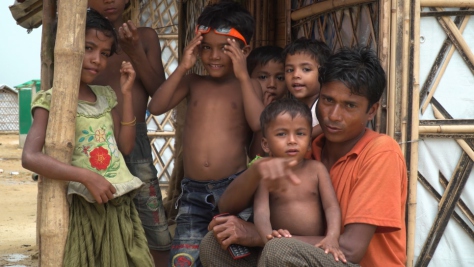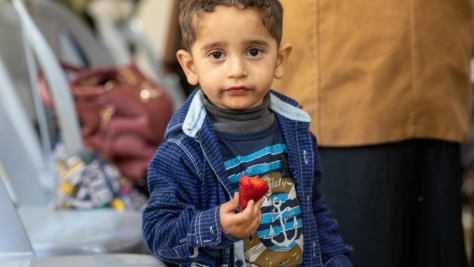Ethiopia: Somali refugees to be relocated away from border
This is a summary of what was said by UNHCR spokesperson Jennifer Pagonis – to whom quoted text may be attributed – at today's press briefing at the Palais des Nations in Geneva.
In Ethiopia today (Friday), UNHCR teams are expected to start relocating a group of 500 newly-recognized Somali refugees who fled from renewed conflict in strife-torn south and central Somalia over the last year. They have been staying around the Kebribeyah area, near the Somali border in eastern Ethiopia and are being relocated to a re-opened UNHCR camp at Teferi Ber.
The refugees are part of a group of 4,000 Somali refugees who have recently been granted refugee status by UNHCR and the government's Authority for Refugees and Returnees Affairs (ARRA). An estimated 7,000 additional Somalis who also claim to have fled fighting and insecurity in Somalia, are waiting to be screened at other sites in eastern Ethiopia.
The new camp site at Teferi Ber, some 120 km north of Kebribeyah, was formerly a UNHCR camp which in the 1990s hosted some 49,000 mainly Somalis refugees who had fled fighting in their country. The camp was officially closed in 2001 after all the refugees returned, mainly to the self -declared republic of Somaliland.
After arriving at Teferi Ber, the refugees will spend three days in a reception centre where they will be allocated plots of land to construct homes and given building materials. They will also be given food as well as tarpaulins, blankets, sleeping mats, kitchen sets, jerry cans, kerosene stoves, and soap. The ARRA has established a temporary health centre until permanent structures can be built.
The Somali Region of Ethiopia already hosts more than 16,500 refugees. With the new arrivals, the total is 20,300. At the peak of the Somali refugee crisis in the early 90s, the region hosted 628,000 refugees in eight camps. The overwhelming majority went home between 1997 and 2005, and all of the camps were closed except a camp at Kebribeyah.
Related news and stories
Thousands of newly arrived Somali refugees in Ethiopia relocated to new settlement
Samira's Story
Drought brings life-threatening food shortages for refugees in Ethiopia
100,000 new Somali refugees arrive in Ethiopia in the past month, UN and partners are calling for urgent funding
UNHCR teams and partners rush assistance to some 100,000 newly arrived Somali refugees in hard-to-reach area of Ethiopia
As the Horn of Africa drought enters a sixth failed rainy season, UNHCR calls for urgent assistance
-

Refugees start blog to share information on coronavirus
22 Apr 2020 A group of Congolese refugees started to blog about daily life in Angola. But COVID-19 has given them a more critical role – to educate and inform. -

Beware long-term damage to human rights and refugee rights from the coronavirus pandemic: UNHCR
22 Apr 2020 -

Massive floods in DRC's South Kivu impact 80,000 people, kill dozens
21 Apr 2020 -

Rohingya refugees: Preparing for coronavirus at world's largest refugee site
21 Apr 2020 -

COVID-19: UNHCR warns of severe implications for annual monsoon response in Bangladesh
21 Apr 2020 -

'If COVID-19 arrives in the camp, it will be devastating'
21 Apr 2020 Rohingya refugee Saidul Hoque describes how life in the refugee settlements in Cox's Bazar has changed since a lockdown started to halt the spread of the coronavirus. -

Displaced and stateless women and girls at heightened risk of gender-based violence in the coronavirus pandemic
20 Apr 2020 -

As COVID-19 pandemic continues, forcibly displaced children need more support than ever
20 Apr 2020 Joint statement by Henrietta Fore, UNICEF Executive Director, and Filippo Grandi, UN High Commissioner for Refugees -

Cate Blanchett's 'Films of Hope' to watch on coronavirus lockdown
17 Apr 2020 The actor, director and UNHCR Goodwill Ambassador recommends six movies for homebound film-lovers during COVID-19 crisis.
